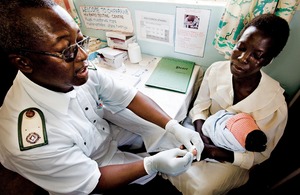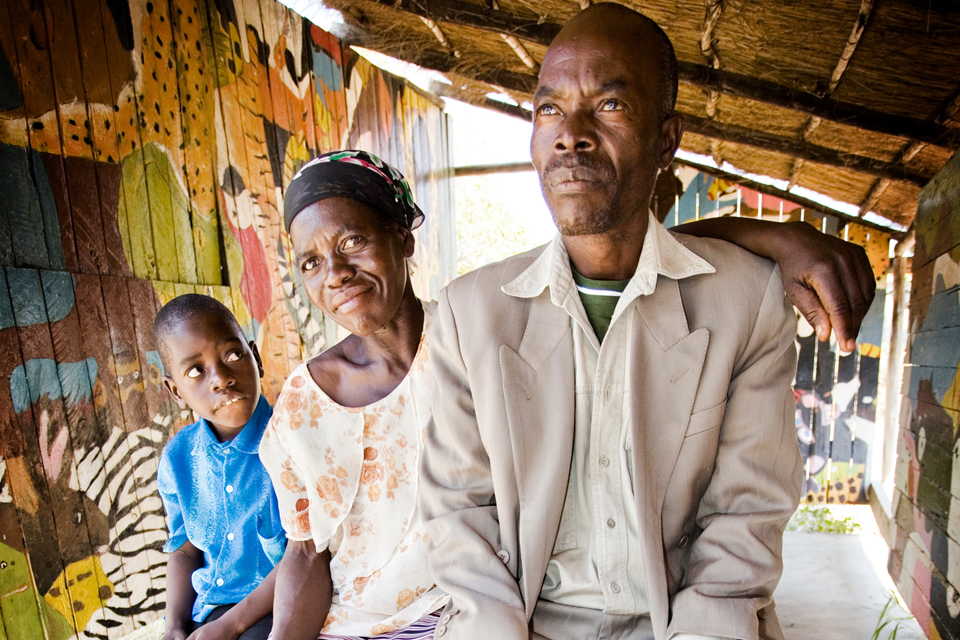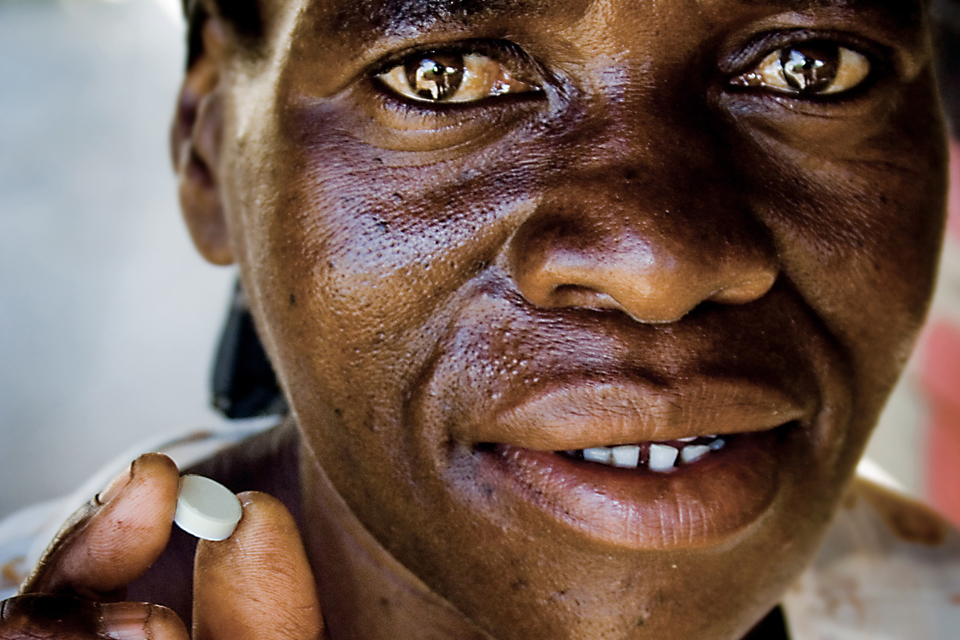A generation free of HIV
How DFID is helping to prevent the transmission of HIV from mothers to babies in Zimbabwe

A nurse at the Chiparawe Clinic, Marondera, administers a HIV test. Picture: The Elizabeth Glaser Pediatric AIDS Foundation
Of the 33.3 million people globally living with HIV, 2.1 million were children. Nearly 1,200 children become infected with HIV every day, representing nearly one in six new infections globally, according to UNAIDS.
Despite these alarming statistics, the majority of pediatric HIV infections are preventable. More than 90% of HIV infections in children result from mother-to-child-transmission, where the virus is passed from a mother living with HIV to her baby during pregnancy, childbirth, or breastfeeding.
The most effective method of preventing HIV infections in infants is by initiating lifelong antiretroviral therapy (ART) as early as possible to HIV-positive pregnant women. Antiretrovirals decrease the amount of virus in the mother’s bloodstream, reducing the risk that she will transmit the infection to her infant. These drugs also have a protective effect on the child before and after birth, helping them to resist HIV infection.
According to the United Nations, the use of antiretrovirals has averted an estimated 200,000 new HIV infections in children over the last 12 years. However, only 53% of HIV-positive pregnant women worldwide are receiving this critical intervention.
The Elizabeth Glaser Pediatric AIDS Foundation, partly funded by UKaid from the Department for International Development, is supporting the early identification of HIV-positive pregnant women and initiation of ART in all treatment-eligible pregnant women and children in Zimbabwe.
The foundation works in partnership with national ministries of health and a range of other partners to provide localised responses to the spread of HIV in 17 countries around the world. The main objective is to deliver a comprehensive set of interventions to prevent mother-to-child transmission.
Working with men
Prevention of mother-to-child transmission (PMTCT) is as much about education as it is about medication. Through a health facility or home visits, families are given opportunities to learn about staying negative or living positively with HIV and are linked with other sources of support. This aspect of the programme is important, especially for the family members of those living with HIV.

Claris and Pitiel Chauruka with their son Tatenda. Picture: The Elizabeth Glaser Pediatric AIDS Foundation
Claris Chauruka tested positive for HIV when she took a test at an antenatal clinic in 2001. At first her husband Pitiel was unsupportive, but Claris enrolled in the PMTCT programme and gave birth to a son, Tatenda, who tested HIV-free at 18 months.
Today Pitiel and Claris take part in support groups advocating HIV testing and how to continue living once HIV positive. As part of the PMTCT programme’s community mobilisation activities, Pitiel gives testimonies with his son, Tatenda, by his side. Tatenda has now started school and Pitiel is one of the few father mentors that the Buhera district PMTCT program.
‘Her problem, not mine’
However, Pitiel’s journey to accepting his wife’s HIV status and his own was not an easy one. Pitiel had tested positive for HIV in 1995 through a company driven HIV-testing program, but he had decided not to disclose his status to his wife. When Claris fell pregnant and found out that she was HIV-positive, she attended the newly introduced Murambinda Hospital PMTCT program. She disclosed her status to her husband, but Pitiel would not have anything to do with it and insisted it was her problem.
With the support of healthcare workers, Claris continued to talk to Pitiel about HIV-testing and followed all the advice and protocols of the PMTCT programme. To their joy, their child Tatenda tested HIV negative at 18 months. Finally, in 2004, Pitiel approached the local nurse on his own accord and revealed that he was tested for HIV at work and had known his status all along.

Claris Chauruka, HIV positive, holding an ARV pill that forms part of her combination therapy. Picture: The Elizabeth Glaser Pediatric AIDS Foundation
Pitiel explains: “At first many HIV-positive men who attend the support group don’t admit their status. They ask many questions and we reassure them and help them come to terms with their diagnosis. Our support group is like a family. We sing and dance, we talk and we teach, we laugh and we cry. But everyone is equal.”
Words and pictures supplied by the Elizabeth Glaser Pediatric AIDS Foundation.
Stats and facts
The Elizabeth Glaser Pediatric AIDS Foundation works in Zimbabwe together with partners under the umbrella of the Family AIDS Initiatives programme (FAI).
DFID works in partnership with governments and donors to strengthen health systems: supporting health worker training and deployment, efficient medical equipment and drugs procurement, and addressing barriers to access care such as transport, user fees and gender-based inequalities.
The UK government is working with partners to increase up to 80% the percentage of HIV-infected women who receive ARV treatment by 2010 to reduce mother-to-child transmission and increase access to drugs and diagnostics, including for pediatric care.